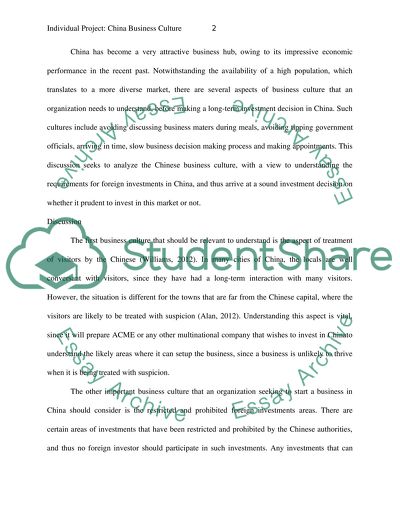Fin 630 Unit 4 individual project China business culture Research Paper. Retrieved from https://studentshare.org/finance-accounting/1468752-fin
Fin 630 Unit 4 Individual Project China Business Culture Research Paper. https://studentshare.org/finance-accounting/1468752-fin.


